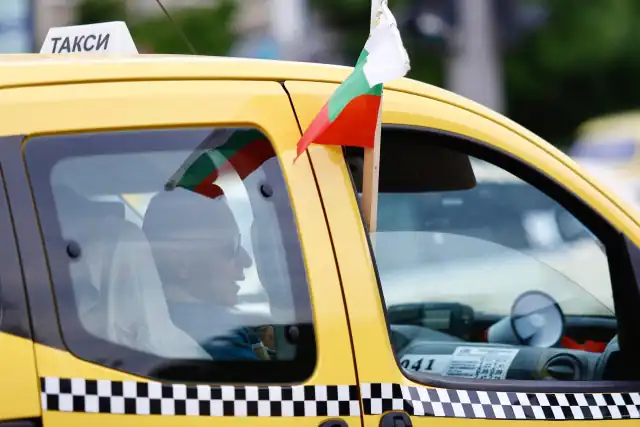
In the heart of Plovdiv, Bulgaria, a contentious debate has ignited among local taxi drivers following proposals to expand the city’s taxi fleet and potentially introduce drivers from India.
The National Association for the Protection of Transporters and Taxi Drivers (NAPTTD) has voiced staunch opposition to the municipality’s plan to increase the current quota of taxi cars from 2,000 to 2,200.
Volodya Domashenko, co-chairman of NAPTTD, expressed concerns to the “Sega” newspaper about what he sees as a looming threat to local jobs.
He suggested that the quota expansion could pave the way for Indian drivers to enter the market, potentially displacing native taxi drivers who are already grappling with operational challenges despite the existing quota not being fully utilized.
Mayor Kostadin Dimitrov defended the proposal, emphasizing its necessity to meet the growing demands of Plovdiv’s expanding population. Dimitrov argued that the current fleet of 1,715 active taxis is insufficient to ensure timely and reliable service, especially during peak hours.
The debate has intensified amidst parallel developments in Plovdiv’s public transport sector. “Avtotrans,” responsible for managing city buses, recently announced plans to recruit 30 bus drivers from India.
Dimitar Cholakov, the company’s manager, highlighted the rigorous selection process and comprehensive training planned for the new recruits to integrate them smoothly into their roles.
Unlike their taxi-driving counterparts, Plovdiv’s bus drivers have expressed a different sentiment, welcoming the addition of Indian colleagues as a potential relief to their workload.
They anticipate that the new recruits will enhance operational efficiency without compromising on service quality and will receive equal pay and accommodation benefits comparable to Bulgarian drivers.
The influx of Indian workers into Bulgaria isn’t limited to Plovdiv’s public transport sector. JS International, in collaboration with Bulgarian recruitment agencies, has been actively promoting the employment of Indian labor across various industries in the country.
Similar initiatives in neighboring countries like Austria and Romania have shown a growing trend of Indian workers filling roles in transportation and delivery services, indicating broader implications for European labor markets.
Local taxi associations remain steadfast in their opposition, citing concerns over job security and heightened competition within Plovdiv’s transportation sector.
The sentiment reflects broader anxieties among Bulgarian workers about the impact of international labor influxes on local employment opportunities.
Mayor Dimitrov’s proposal to increase the taxi quota, alongside efforts to diversify the city’s workforce in response to demographic changes, remains under public scrutiny.
With the recent closure of the public feedback period, stakeholders await the municipality’s decision on whether to proceed with the expansion amidst ongoing tensions and differing perspectives within Plovdiv’s transportation community.
This article was created using automation technology and was thoroughly edited and fact-checked by one of our editorial staff members
